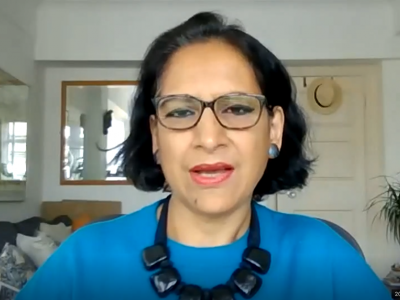
IASH proudly presents a celebration of the 40th anniversary of the Charles Wallace India Trust, recorded on 13 October 2021.
Supported by the Trust, IASH has hosted more than twenty CWIT Fellows from India since 1995, exploring topics as diverse as sepoys in the colonial era, sculptural art, the origins of chess, agriculture, yoga and contemporary Hindi fiction. To apply for the Charles Wallace India Trust Fellowship for 2022-23, please visit the Fellowship webpage.
The Chair is Professor William Gould of the University of Leeds.
Speakers include former IASH / CWIT Fellows Dr Sabyasachi Dasgupta, Dr Piyush Mathur, Dr Sridhar Modugu and Dr Nilanjana Mukherjee.
The event is introduced by Shreela Ghosh, Secretary of the Trust and member of IASH's Advisory Board.
Dr Sabyasachi Dasgupta is an Assistant Professor at the Department of History at Visva-Bharati, Santiniketan. His core area of research is the Colonial Indian Army, while also retaining an interest in the Post-Independence Indian Army. Dasgupta essentially seeks to explore notions of identity, notions of honour and justice, structures of deference, the complex dynamics between colonial armies and their parent societies, the flux generated by army policies in their parent societies, etc. Dasgupta has also delved into comparative military history by comparing the mutinies in the Scottish Highland regiments of the British army with that of high caste regiments in the pre-1857 British Indian army, or more specifically the Bengal army. He is currently working on visual depictions of the Revolt of 1857 and two biographies by Bengali medical personnel in World War I.
Dr Piyush Mathur, an unaffiliated researcher, is the author of Technological forms and ecological communication: a theoretical heuristic (Lexington Books, 2017); and relatively recently, of 'Understanding post-COVID-19 global politics: A tentative theoretical framework' (TIGA Studies 3: November 2020). Mathur's academic publications generally have explored themes in philosophy, communication, politics, environment, literary criticism, and India studies. He has also published journalistically in Asia Times Online, Himal Southasian, Acres USA, The Earth Island Journal, and Thoughtfox.xyz.
Dr Sridhar Modugu completed his doctoral studies at the University of Hyderabad on the topic of technology and colonialism. During his postdoctoral research, he is engaged in understanding postcolonial developments in agriculture research policy. He also has done studies on Tribal Agriculture and livelihoods. For the Xavier Institute of Management, Bhubaneswar, he has conducted a study on understanding dissent in Indian agriculture. Since 2013, he is engaged in teaching history and technology related courses to the students of Masters and Undergraduate at Tata Institute of Social Sciences, Tuljapur campus.
Dr Nilanjana Mukherjee teaches English Literature in Shaheed Bhagat Singh College, University of Delhi. She received her degree of Ph.D. in the year 2011 from the Jawaharlal Nehru University, New Delhi. She is the author of Spatial Imaginings in the Age of Colonial Cartographic Reason: Maps, Landscapes, Travelogues in Britain and India (Routledge: 2020). She has also co-edited the volume, Mapping India: Transitions and Transformations 18th - 19th Centuries (Routledge: 2019). She was recently conferred the Delhi University Foundation Day Award for Teaching Excellence in June, 2021 and is the recipient of the Meenakshi Mukherjee Memorial Prize for her journal article, 'Drawing Roads, Building Empire: Space and Circulation in Charles D'Oyly's Indian Landscapes', awarded in 2015 by the Indian Association of Commonwealth Literature and Language Studies. At present, she is working on two projects: first, a creative biography of her grandfather, Ardhendu Prasad Banerji, a Bengal School Artist at the time of the nationalist movement in Bengal; and second, a study of the Indian Desert as a spatial imaginary in its evolution as a frontier zone in North-West India.
